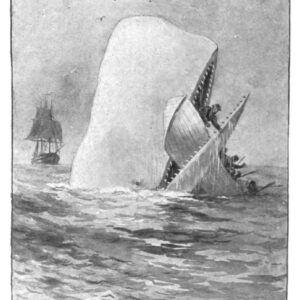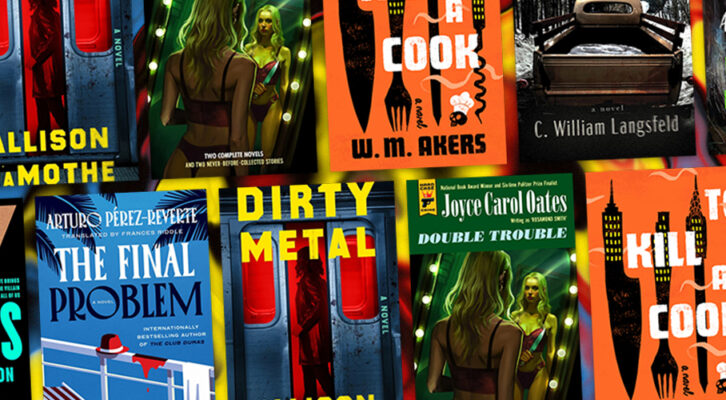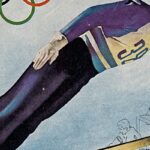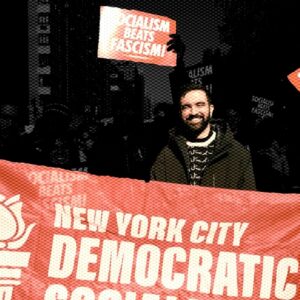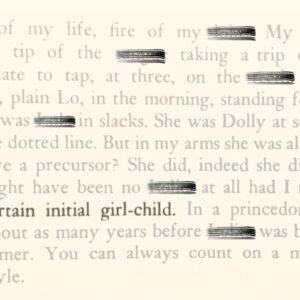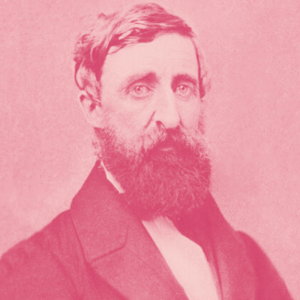
Five Books Making News This Week: Soldiers, Mathematicians, and Pornographers
Andrea Molesini, Ethan Canin, Chris Offutt, and More
Ethan Canin is back, with a book that raises the bar for novelists. Chris Offutt’s memoir reveals his father’s savage side. Christopher Isherwood inspires Darryl Pinckney’s second novel. A long-time critic opens himself up to criticism. And an award-winning Italian best seller tells a World War II era story based on a family diary.
Ethan Canin, A Doubter’s Almanac
Canin’s eighth novel drew starred pre-pub reviews (Booklist: “In his thoroughly absorbing new novel, Canin gives readers a nuanced, heartbreaking portrait of a tortured mathematician, throwing in a lucid, riveting explication of algebraic topology for good measure.” Publishers Weekly: “Canin’s accomplishments are many, not least of which is his ability to lucidly explain the field of algebraic topology. But it is his superb storytelling that makes this novel a tremendous literary achievement.”) It seems the raves have just begun.
“A Doubter’s Almanac is a long, complex novel about math, which sounds like the square root of tedium, but suspend your flight instinct for a moment,” writes Ron Charles (Washington Post). “Ethan Canin writes with such luxuriant beauty and tender sympathy that even victims of Algebra II will follow his calculations of the heart with rapt comprehension. And to be fair, although the story manipulates complex equations, A Doubter’s Almanac really isn’t about mathematics so much as a family of mathematicians wrestling with the curse of their own genius.”
Heller McAlpin (Los Angeles Times) calls Canin’s new novel “blazingly intelligent.” She compares it to “the meaty novels of Richard Powers as well as David Leavitt’s The Indian Clerk (2007), a novel about two great early 20th century mathematicians, G.H. Hardy and Srinivasa Ramanujan,” noting that “Canin’s family saga, packed with near operatic drama, is far more emotional.” And, she concludes, A Doubter’s Almanac “movingly confronts the challenges of outsized ability, overwhelming ambition and ‘calamitous inheritance’ with brio and feeling.”
After seven books Canin is “at the top of his form, fluent, immersive, confident,” writes Julie Buntin (Slate).
You might not know where he’s taking you, but the characters are so vivid, Hans’s voice rendered so precisely, that it’s impossible not to trust in the story. Even difficult abstractions, passages that unravel Milo’s most complicated mathematical ideas, take on narrative momentum—Milo is unable to abandon a problem until he’s solved it, and his desire is compelling, even when the math is hard to parse. “It was as though the numerals had been expressly fabricated, like more-perfect words, to elucidate the details of creation,” Canin writes of Milo’s passion for math, though he might as well be referring to his novel, in which the delicate network of emotion and connection that make up a family are illuminated, as if by magic, via his prose.

Chris Offutt, My Father, the Pornographer
Chris Offutt’s father wrote some 400 books, mostly porn under a pseudonym. When his father died at 79, he was tasked with sorting through the files, which took him deep into his father’s savage imagination.
“There may be stranger inheritances than 1,800 pounds of pornography, but I can’t recall reading about any,” writes Chris Tucker (Dallas Morning News). “That was the gift, or the burden, handed down in 2013 to the memoirist and novelist Chris Offutt by his late father, Andrew J. Offutt, a writer himself and one of the most unusual characters you’ll meet inside or outside a book.”
“The book begins with Mr. Offutt…driving back to his childhood home in Haldeman, Ky., first to see his father die, and then to go on a major spelunking expedition in his father’s office, which had barely been touched in a decade,” writes Jennifer Senior (New York Times).
As this memoir buzzes along, though, what becomes clear is that the real obscenity of Mr. Offutt’s childhood had little to do with his father’s profession. It had to do with his father’s cruelty, and the fragile, frightening nature of his ego, big as the Hindenburg and every bit as flammable. ‘You’ll always be afraid of him, you know,’ Mr. Offutt’s brother, Jeff, once told him. It wasn’t until their father died that the author realized he was right.
Through it all, she concludes, “Mr. Offutt somehow manages to summon compassion for his father.
That, ultimately, is what makes this memoir so unexpectedly moving. He admires his dad’s bravery for choosing a writing life. He wishes his dad didn’t have to become a hack, seeing real potential in his fecund, rambunctious imagination. And most of all, he pities his father’s loneliness, for being sentenced to a lifetime preoccupation with torture and a headful of savage sexual fantasies, predicated on the harming of innocents.
“I felt a horrified sympathy for anyone who lived with such imagery on a daily basis,” he writes. “I had no idea how miserable he had truly been.”
“Offutt’s prose is clear-eyed and unflinching, even in the face of great conflict and pain,” notes Mark Rotella (Los Angeles Times).
Michael Lindgren (Washington Post) calls Offutt’s book “something of a literary detective story interwoven with memories of a youth riddled with sexual confusion and inarticulate yearning.” “When the author returns, as an adult, to his childhood home to sort through his late father’s capacious archives, the task quickly becomes a weightier undertaking. ‘The project,’ he writes, ‘felt less like clearing a room and more like prospecting within his mind.’”

Darryl Pinckney, Black Deutschland
Pinckney is a longtime contributor to the New York Review of Books–in a current issue he considers Ta-Nehisi Coates’ Between the World and Me.
The protagonist in his second novel is inspired by Christopher Isherwood’s Berlin Stories and the hope of escape from his homeland’s homophobia and racism pursue an ex-pat’s life in Germany. “I wanted to live where authority had little interest in black men,” Pinckney writes.
Adam Haslett (New York Times Book Review) notes that Pinckney “wrote an acclaimed novel, High Cotton, published in the early 1990s, a kind of postmodern bildungsroman in which the unnamed narrator, raised amid the black bourgeoisie of Indianapolis, dabbles in, satirizes, but most often simply avoids the various identities that his family, on the one hand, and a dominant white culture, on the other, are eager to slot him into. Thematically, Black Deutschland picks up where High Cotton left off, with a lost young man of the black upper-middle class…struggling in his ‘campaign for an adult life.’ But like many black artists before him, Jed finds the escape to Europe less than complete.”
While Black Deutschland “draws on Pinckney’s years of living in Berlin, it’s too wildly inventive to be seen as a mere memoir in disguise,” writes Michael Upchurch (Chicago Tribune). “Jed is a gay black man in his 20s, who after doing a stint in rehab flees his native Chicago…. West Berlin, as Jed sees it, is ‘a floating island of neon and pleasure deep inside Communist territory’ that offers him a chance to reinvent himself.” Jed’s “hyper-awareness of his surroundings (‘The past sat on the shoulder of everything you saw in Berlin’) make this an indelible portrait of a specific time and place,” Upchurch concludes. “Pinckney’s storytelling quirks may not be for everyone. But for readers seeking a maverick prose stylist diving into fiendishly tricky politics and history, Black Deutschland is a must.”
James Wood (The New Yorker) compares Pinckney’s Jed to “another fictional Chicago dreamer,” Saul Bellow’s Augie March. Jed “ is engaged in that great comic picaresque struggle, which is to bring the busy inside of his head into workable alignment with objective reality…He doesn’t achieve that, but history forces a kind of reconciliation, for Jed’s sojourn in West Berlin spans the nineteen-eighties, so that we begin the book in a city set apart for fantasy and self-projection and end it as the Wall comes down…, with the actual forcing its brutal way onto the streets. The city whose main business had seemed to be culture and partying…is changing, and our flailing hero must leave to find another arena.”
“Despite the gravity of Jed’s burdens and dilemmas (race, success, sanity, America, Germany),” Wood concludes, “the book’s tone is comic, pleasingly spry, and the prose breaks naturally into witty one-liners: ‘Manfred had a type: the most attractive woman in the room.’ ”
Damian Van Denburgh (San Francisco Chronicle) has his quibbles, but adds, “in the final chapter, with its quietly elegiac tone, Pinckney miraculously pulls Jed’s life into a kind of anamorphic perspective — and damn near redeems the whole thing. Black Deutschland is a mess. But it’s a fascinating mess, written by a crucial, one-of-a-kind writer.”

A.O. Scott, Better Living through Criticism
A.O. Scott, longtime movie critic for the New York Times and one-time book critic, stirs up a storm of reactions with his first book.
Most positive is Michael Wood (New York Times) who writes “…if we were looking for an intelligent, informed and often funny account of why we can’t live comfortably with criticism (in any of the word’s meanings), and can’t live without it, either, we need look no further, and shall probably want to read this book more than once.”
Jonathan Sturgeon (Flavorwire) points out that Scott’s title “implies self-help (and it wouldn’t be the first book inspired by Rilke’s final injunction in Archaic Torso of Apollo’),” and its tone—“Our drive to create originates in—and compensates for—a primal feeling of alienation, of lostness in the universe and confusion about our identity”—“suggests pop psychoanalysis,” not to mention the influence of Harold Bloom’s The Age of Anxiety. He adds, “…if Bloom’s writing has the gross but not always un-charming appeal of a wine-greased, hot-tub lothario, Scott aims more for the ‘cool but not serene dad’ or ‘with-it youngish professor.’ Or, the New York Times movie critic.”
David D’Arcy (San Francisco Chronicle) focuses on the “self help” angle. “His book will no doubt be on film school syllabi. For would-be future critics, he even offers a list of words to avoid — the list is far too short, and leaves out ‘riveting’ — and the footnotes could keep any reader busy for months. Keep the author’s motivational fervor in check, and this self-help book is likely to work better than most diets.”
Laura Miller (Slate) takes a nuanced approach.
Self-importance is the enemy of significance, and no one can be more painfully aware of this paradox than a critic, which explains why Better Living Through Criticism is such a curiously flitting book. Scott begins with a bold assertion (“criticism, far from being a minor, petty, secondary art, is in fact larger than the others”) and then dances back into self-deprecation and disclaimers. Recalling his youthful stabs at poetry and fiction, he blames his inability to write the sort of idea-driven work he aspired to on “shallowness, maybe. Lack of nerve. Insufficient talent.”
Manuel Betancourt (Los Angeles Review of Books) finds the book “exhaustive” but “disappointingly selective.”
Better Living Through Criticism moves effortlessly from Plato and Aristotle to Walter Pater and T.S. Eliot, from Horace and Kant to Harold Bloom and Andrew Sarris, covering ample ground in what is an immense bibliography of literature on art and criticism. This genealogy, which also includes extended ruminations on texts by George Orwell, Henry James, George Gissing, and Ralph Waldo Emerson, ends up feeling blindly devout to the critic as, if not practically then theoretically, always already male.
Betancourt offers a list to remedy Scott’s “blind spot,” beginning with Aphra Behn, Octavia Butler, Virginia Woolf, Toni Morrison and Adrienne Rich, and including Margaret Cavendish, George Eliot, Margaret Fuller, Djuna Barnes, Zora Neale Hurston, A.S. Byatt, Iris Murdoch, Muriel Spark, Cecelia Ager, C.A. Lejeune, Helen Vendler, Julia Kristeva, bell hooks, Margaret Atwood, Elaine Showalter, Julia Alvarez, Laura Mulvey, Molly Haskell, “or any other number of female artists and critics who have spent the past couple of centuries reframing and refuting, repurposing and refueling, remaking and repealing the many arguments Scott so carefully outlines in Better Living Through Criticism.”
Leon Wieseltier (The Atlantic) suggests that Scott’s title “is a kind of reverse trigger warning. It offers friendly assurance to anyone who might be daunted by its vast abstractions. It is a promise of fun, which may be the only form in which we are now prepared to take our intellectual medicine. Scott’s subject is the nature of criticism, which is his profession…and his vocation, and he broaches his subject, which is as ancient as Aristotle and Longinus, with a preening account of his Twitter war with Samuel L. Jackson about The Avengers. As I say, fun.”
But Wieseltier takes exception to Scott’s low-brow approach.
What we do not need now is another cheerful exhortation to aim low. Scott disdains, for the partiality of their perspectives, the pessimism about movies that was expressed by some of his precursors. Yet there is more wisdom about the art of cinema to be found in the complaints of Agee and Farber and Kael and Denby and Thomson than in Scott’s garrulous and complacent musings, precisely because they state an allegiance. They are animated by large principle and an unembarrassed grand view of the art. They are criticism. Scott believes in criticism, and he believes in art, pleasure, beauty, and truth, but most of all he believes in brunch.

Andrea Molesini, Not All Bastards Are from Vienna
A coming-of-age story based in part on wartime journals of the author’s great aunt, this first novel won Italy’s Campiello prize.
Malcolm Forbes (Minneapolis Star-Tribune) says the novel “roars into life from the get-go.”
One night in the fall of 1917, German troops turn up in trucks and on motorcycles at the grand estate of the Spada family in a small town north of Venice and start breaking down doors, emptying cupboards and smashing furniture…. As if war raging nearby were not troubling enough, the Spadas must now share their home with the invading forces.
And, he adds, it “unfolds to become a riveting tale of courage and resistance.”
Bridey Heing (Paste) calls Molesini’s novel “riveting and heartwarming,” and adds, “Molesini balances a nuanced look at the nature of war with the minor triumphs and defeats that mark growing up and falling in love. Molesini’s moving and lyrical writing proves that Not All Bastards are From Vienna belongs in the canon of great war fiction.”
Katherine A. Powers (New York Times Book Review) concludes the novel is “wonderfully alive — often terribly so — as a wartime adventure and story of youth arriving at manhood.”
Jane Ciabattari
Jane Ciabattari, author of the short story collection Stealing the Fire, is a former National Book Critics Circle president (and current NBCC vice president/events), and a member of the Writers Grotto. Her reviews, interviews and cultural criticism have appeared in NPR, BBC Culture, the New York Times Book Review, the Guardian, Bookforum, Paris Review, the Washington Post, Boston Globe, and the Los Angeles Times, among other publications.










